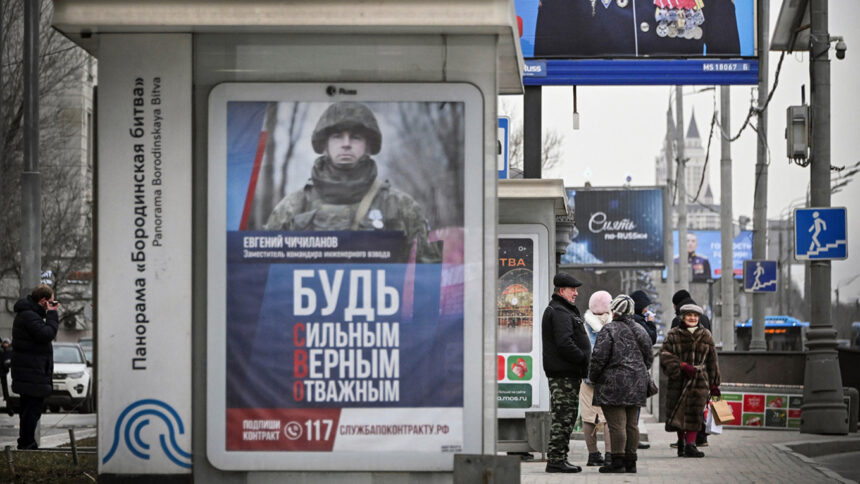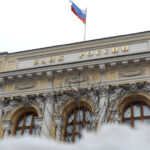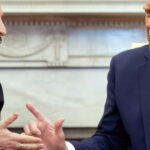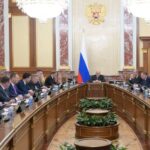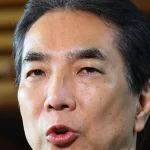“Yes, inflation is out of control. But it looks like there’ll be a ceasefire soon. We can put up with more disruption until then. And, after all, it’s not like Russians don’t know how to make sacrifices. Fancy foods are not the main thing in life,” said Katya from Moscow in a bizarre recent conversation. Even the capital’s cosseted middle classes can hardly deny that real inflation remains high on all kinds of foods, from dairy staples to gourmet items.
One can see various projections at work in this kind of talk. When dealing with cognitive dissonance, people reveal their true feelings about the difficult, gradually worsening economic circumstances in Russia during the fourth year of war.
For one thing, there is this fatalist optimism as if it was possible defer the political reckoning of the economic costs of the war indefinitely. In turn, magical thinking that things will turn out fine is predicated on dangerously naive assumptions about normalization with the West and — more importantly — a massive shift in spending from weapons to more useful investments that actually improve citizens’ lives. But as Andras Toth-Czifra recently argued, spending is likely to remain skewed towards military purposes regardless of any negotiations, to the detriment of social priorities and especially regional budgets.
In other words, it looks very much like people will be left gravely disappointed and resentful whatever the outcome of the negotiations. Furthermore, it is revealing to hear from Muscovites the old chestnut that Russians are a stoic nation while people in the capital have lived a life wrapped in cotton wool, even during the war.
Katya had just visited one of the vast French supermarkets on the edge of the city (which continues to operate in Russia “for the good of the country’s population”). She complained about the poor quality of products, the lack of choice and the high prices of once-affordable specialty cheeses and cold cuts. Katya does not need to work because, somewhat typically for a wide segment of the capital’s upper-middle class, she can live on rental incomes from two flats she owns and lets out. Next week she will take a holiday to Turkey. The exchange rate does not bother her. Well, not too much given how much she has been able to raise rents.
One of my academic colleagues just got her EU visa approved. But all she can talk about is going shopping in a ”normal country.” The wife of a security officer in a large southern city jokes with me that she must be okay given how overweight she still is, despite having to drop her cleaner and one of the tutors for her kids. The 20,000 rubles ($227) the cleaner asked for in return for a few hours of work a week was apparently too much.
Meanwhile, my provincial interlocutors are storing potatoes and taking second jobs. My long-standing interlocutor-cum-motorcycle-nut, Gosha, had to sell his Harley and — perhaps more tellingly — give up on his mortgage and move back in with his parents in Kaluga. His sister’s husband now has to commute to a new job at the aluminum factory — three hours one way and so necessitating a stay in a hostel. But even in these cases, trying to get people to explicitly connect their experiences to the war is difficult, even if they obviously are. I wrote at the end of January in greater depth about the divergent economic experiences of war among my interlocutors.
So far, so unremarkable: even in big wars those with access to unearned wealth are good at maintaining their standards of living. But the thrust of recent Chronicles findings is that few have escaped the sense of the economic dislocation of the war. As always with polling, the findings probably understate the issue significantly: 9% think the conflict has led to improvements in their everyday lives while 54% report adverse effects.
Putin was surely channeling the general mood when he recently said: “Inequality is the real scourge of the modern world. Within countries, inequality gives rise to social tensions and political instability.”
However, Russia remains one of the most unequal countries in the world. The war has not changed the country’s GINI coefficient. Economists report that wages are outpacing inflation. But there are big questions as to the veracity of these data and, in any case, a so-called Keynesian effect of the war economy should be visible in things like the share of wealth accruing to labor (or a falling GINI). None of these things are happening. Even pliant press reports like those from RBC cannot mask this problem fully. At the bottom of this article, an economist admits that the war’s main result is giving the wealthiest a significant boost via investment instruments (a good deposit in roubles returns 25% annually) and rental payments.



